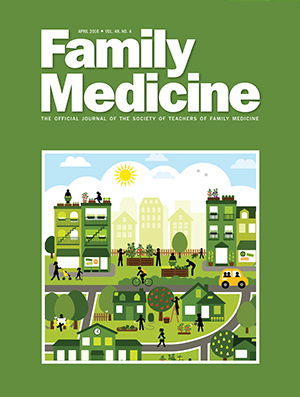 |
|
|
A survey published in the April issue of the journal Family Medicine found that UMass Medical School’s Thursday Morning Memos listserv offers benefits for medical education and practice. |
An informal “narrative medicine” writing program for medical and nursing trainees at UMass Medical School has proven to be an effective means to incorporate reflection into the teaching and practice of medicine, according to a study by Hugh Silk, MD, and School of Medicine student Meghan Veno.
“Reflective writing in medicine allows for the opportunity to analyze, interpret and learn from clinical experiences,” they wrote in the paper published in the April issue of Family Medicine,the journal of the Society of Teachers of Family Medicine. “The purpose of this study was to evaluate the beneficial effects of reflective reading and writing for a department using a weekly listserv.”
Dr. Silk, associate professor of family medicine & community health, is the founder of Thursday Morning Memos in the Department of Family Medicine and Community Health at UMMS. Thursday Morning Memos is a series of reflective essays and poems written by medical and nursing students, residents and faculty that embody the concept of narrative medicine, a practice in which clinicians write reflectively about their encounters with patients. Since 2010, stories and poems that bear witness to clinical and teaching successes have been emailed to listserv members each week during the academic year.
Veno is a second-year medical student who completed the study as part of a medical school summer research fellowship for which Silk was her mentor. In the summer of 2014, Veno distributed a 19-item questionnaire to all 402 listserv members. Questionnaires were completed by 161 readers and 50 writers.
More than 80 percent of Thursday Morning Memos readers reported that reading the weekly story improves empathy and patient-centeredness. Three-quarters of readers found that the pieces helped them feel more connected to colleagues. Writers also found additional benefits, including having better perspective about a patient experience, through the reflective writing process.
Those who reported reading the stories most often were more likely to report achieving the most benefits. The majority of respondents who wrote stories reported that writing allowed them to celebrate a professional encounter that they were proud of, and that writing about experiences with patients gave them better perspective or clarity.
Silk and Veno concluded that, “Strategies like a reflective writing listserv may be a means to improve support and inspire clinicians and learners to feel fulfilled.”
Silk said that writing allows him to take stock of patient experiences and to sometimes acknowledge a job well-done. He considers himself a beneficiary as well as a teacher of narrative medicine. “It has been rewarding to see how this practice is helpful to individuals at all stages of their health care training and careers.”
Related links on UMassMedNow:
Personal stories capture medicine’s highs and lows
Celebrating primary care by telling stories